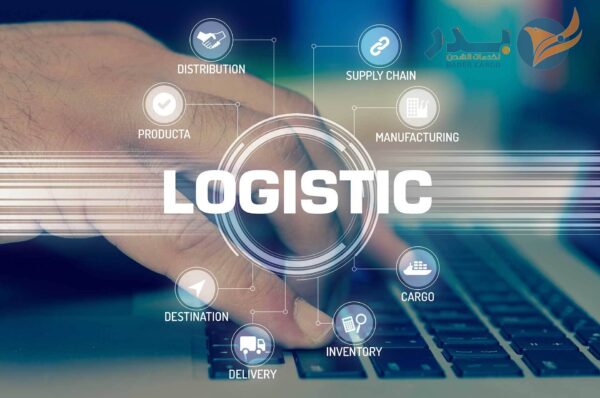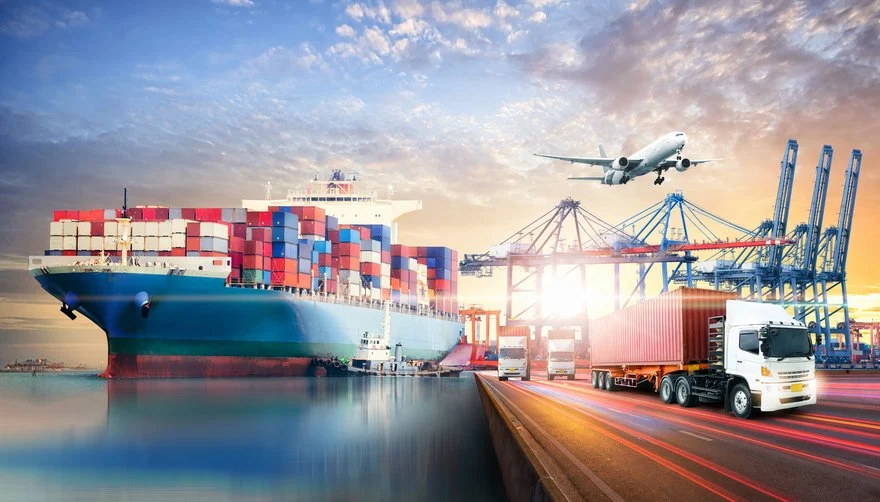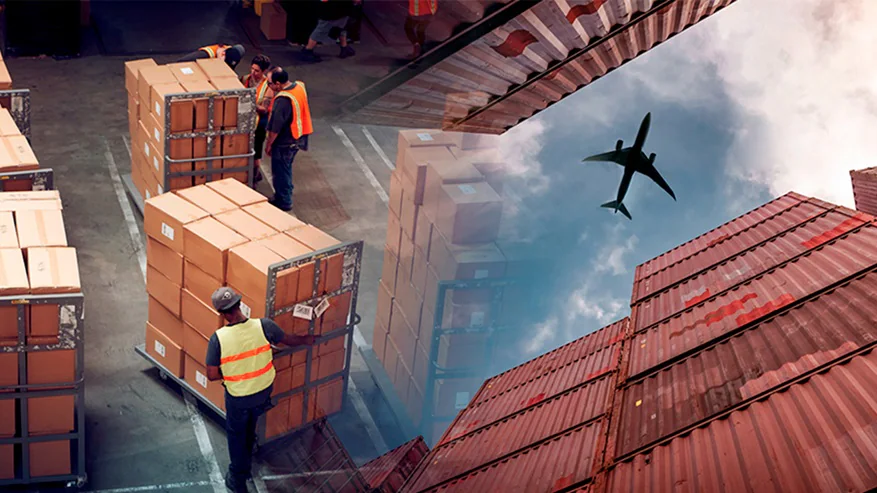Agent Vs. Company: Why should you choose a Third-Party Agent over a Logistics Company?
14 February 2024 0Air CargoCourierTruckingUncategorised
Choosing a Third-Party partner makes you ask many questions to ensure the best quality. With the market expansion, you can find many logistics providers, Third-Party Agents, and Logistics Companies, but before discussing why you should choose a Third-Party Agent over a Logistics Company, you can learn more about What is the Third-Party Agent in our blog “Third-Party Agent: Get Your Business a Customised Solution for Logistics.”
This blog will help you to know the main difference between the Third-Party Agent and the Logistics Company by explaining the key elements of difference, which are:
- Difference between the Third-Party Agent and Logistics Company in Shipping.
- Difference between the Third-Party Agent and Logistics Company in Warehousing.
- Difference between the Third-Party Agent and Logistics Company in Customised Solutions.
- Difference between the Third-Party Agent and Logistics Company in Transportation.
- Difference between the Third-Party Agent and Logistics Company in Shipping
While all Third-Party Agents are fundamentally shipping agents since they provide services to help with cargo transit, not all Logistics Companies are Third-Party Agents because they do not necessarily control the whole transportation process. Third-party agents are also, more often than not, larger firms with access to more resources than most shipping/ logistics companies.

The main differences between Third-Party Agents and Logistics Company:
- Offered Services: Third-Party Agent can provide services that are outside of the scope of a Logistics Company, such as overseeing the entire shipping process from door to door.
- The Type of transportation: The Logistics Company will often specialise in one specific mode of transportation, while a Third-Party Agent can provide multimodal transportation options, such as Sea Freight, Air Freight, and Land Freight.
- Ownership of vehicles and facilities: Third-Party Agents tend to contract with several warehousing facilities and freight shipping vehicles, which often leads to better pricing for customers.
- Difference between the Third-Party Agent and Logistics Company in Warehousing
- Third-Party Agents can provide you with different types of warehouses, as they have many contracts with different types of them. So, whether you want a small or large space in a warehouse you can find it easily with the Third-Party Agent. Also, it can be with the characteristics that your product needs. The main differences between Third-Party Agents and Logistics Company:
- Offered Services: Logistics Companies may offer two or three types of warehouses, based on what type they already have, but the Third-Party Agent can provide you with many types of warehouses with the conditions that you need with its different contracts for all types of warehouses, such as:
- Distribution Centers
Which tend to be customer-centric and often located close to where the end user is, ensuring that things arrive swiftly and in good condition. A distribution center may also provide additional benefits like cross docking, pick and pack, or basic product mixing or packing. Because a distribution center provides more services than a warehouse, it is also outfitted with far more complex equipment to aid the procedures that take place within.
- Smart Warehouse
With its automated systems and technologies for receiving items, storing them, picking them for orders, shipping them, and maintaining an accurate inventory count. Smart warehouses employ technology to boost output, reduce mistakes, and reduce the number of people required to manage the warehouse.
- Cold Storage
This kind of warehousing depends on storing the temperature sensitive products in low temperatures. It extends the life of medication, perishable foods, plants, cosmetics, artwork, and candles. Refrigerated transportation is also used by cold storage warehouses for incoming and outbound cargo.
- On-Demand Storage
On-demand storage is an emerging trend in warehousing. On-demand warehousing connects businesses in need of warehouse space (temporary, seasonal, or to meet sales spikes) with warehouses with extra capacity.
- Bonded Warehouse
Bonded/Customs warehouses are where you can store imported products, it allows you to undergo manufacturing operations without payment of duty for five years from date of acceptance. As the duty on imported goods can be quite costly, the bonded warehouse permits the products to be sold first, and then the charge is paid from the sale cash flows.
-
- Cost: Most Logistics Companies may have a fixed price package, which may be acceptable or not for what you need, but for the Third-Party Agents, and since they are providing several types of from warehouses, you will have a wide range of fees for each service, so you can choose the warehouse that you want with an affordable price.
- Difference between the Third-Party Agent and Logistics Company in Customised Solutions
Most Logistics work based on having a customized solution for your business to have a model that matches your business needs. So, many business owners, manufacturers, or importers prefer to choose Third-Party Partners to provide a “Customized Solution.” For many logistics companies, Customized Solutions could be unavailable, as they already have their warehouses. So, they might not provide you with the specific type of warehouses you want. They could specialize in one freight method, such as sea freight, but don’t have land freights. But for the Third-Party Agents and by their easy access to different service providers, they can provide you with 2000 m in a cold warehouse and sea freight from South Asia to Saudi Arabia with the ability to track your shipment 24/7.

- The main differences between Third-Party Agents and Logistics Company:
-
- Offered Services: Third-party agents could provide solutions for each situation, helping your business needs, which is very different for the Logistics companies who have a list of services that they can’t change for each client.
- Difference between the Third-Party Agent and Logistics Company in Transportation
-
As we have mentioned, the Third-Party Agents have a variety of provided services. They can provide you with a different type of transportation, starting from vans and ending up with conditioned trucks. Also, they can safely transport cargo, construction materials, chemical products, equipment, and animals. Transportation services include the transportation of products, people and animals, from one point to another through train, road, air, sea, or pipeline. Transportation services are classified into three categories: infrastructure, vehicles, and operations. Communication and trade between the two parties are made possible through transportation. The main differences between Third-Party Agents and Logistics Company:
- Offered Services: The method of transportation is an important factor while arranging the cargo procedure. You must decide the prices, how critical it is to deliver the cargo to the end user within a certain time frame, the value of the commodities, as well as the size and weight of the goods, which all can be provided by the Third-Party Agents.
After knowing the main differences between a Third-Party Agent and a Logistics Company, What will you choose for your business?

Fast Logistics is a Third-Party Agent that specializes in providing customized solutions, Sea/Air/Land freight, transportation, Shipping, Packaging, and Customs Clearance. So, for any Logistics services or inquiries, contact us on: m.freight@fastlogisticsco.com. And for more information about Logistics, visit our website at: https://fastlogisticsco.com/about.php .










